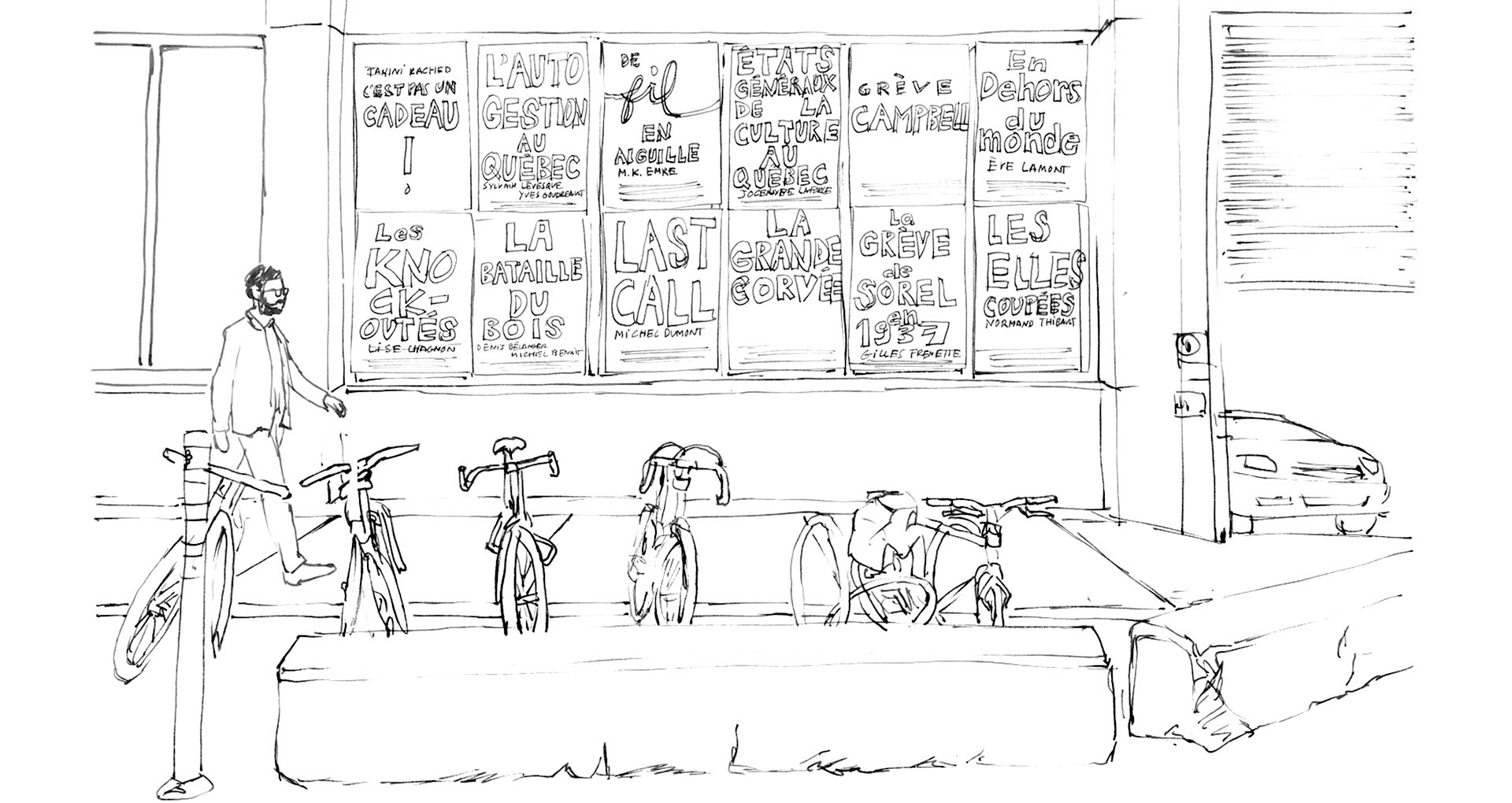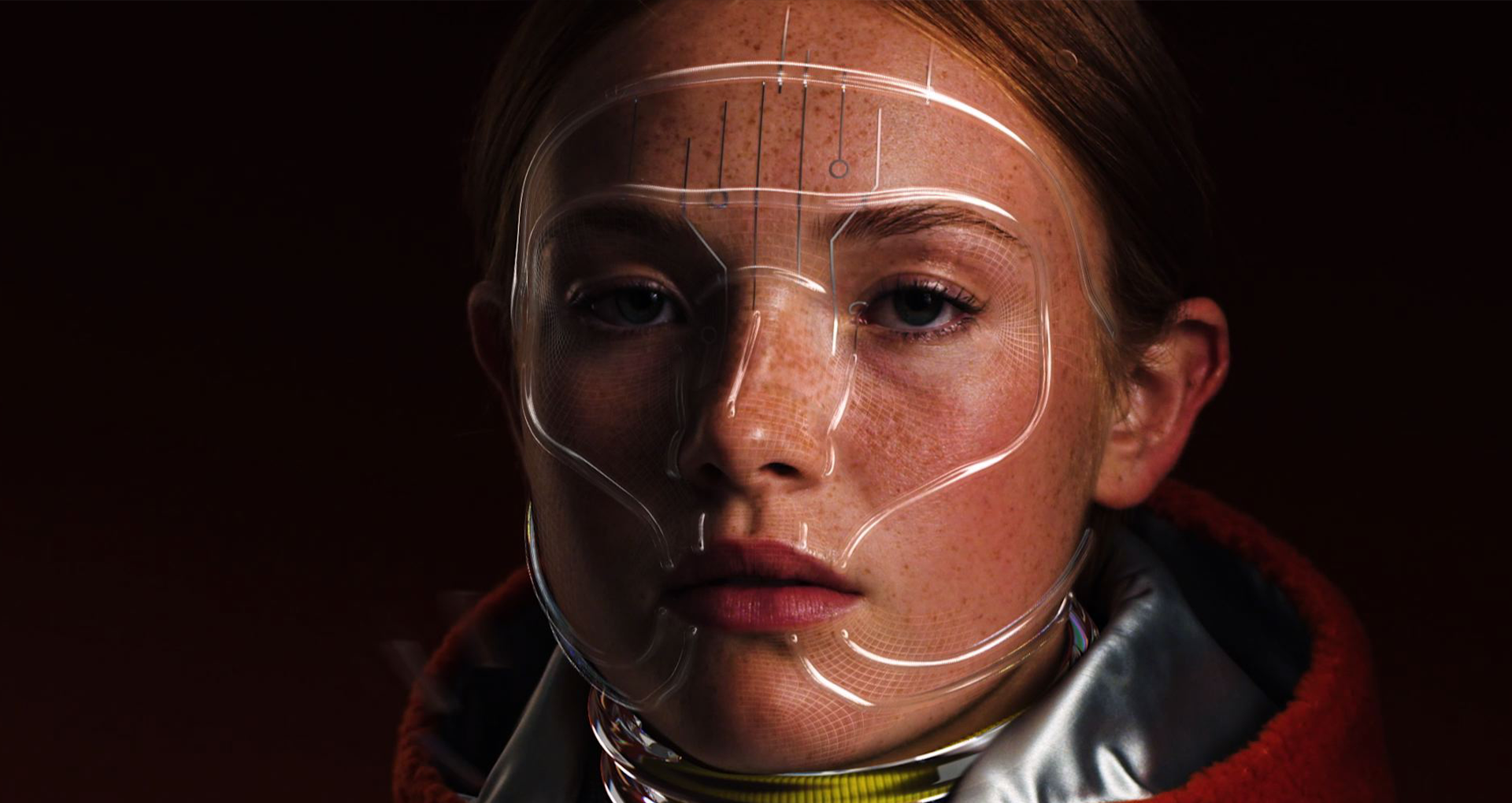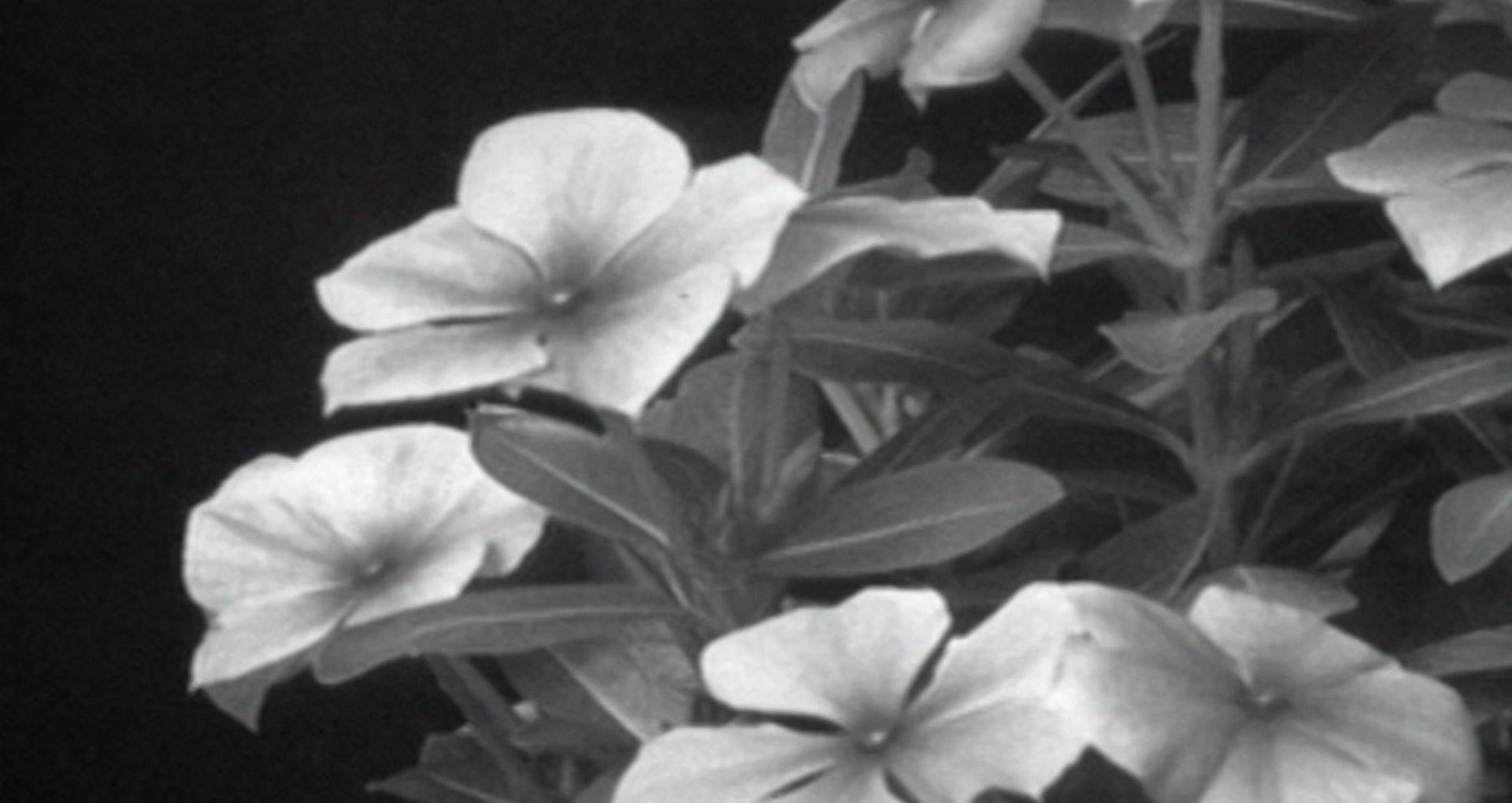
© Karine Savard, sketch of the artist run centre Diagonale's showcase
Karine Savard, Affichez le travail
Research and curatorial residency
Vidéographe is pleased to announce that Karine’s Savard project Affichez le travail was selected for our next research and curatorial residency 2020-2021.
Montréal artist and researcher Karine Savard earns her living making film posters, and in her artistic practice she reflects on her own status as a self-employed worker in the cultural industry, subverting in this new project the use of traditional advertising mediums, such as billboards, windows, and construction site fences, for artistic means. As part of a curatorial and research residency, she will select video works produced at Vidéographe from 1970-80 that address themes relating to work (for example, the beginnings of union organization, self-governing initiatives, workers’ protests) and will then create posters inspired by these video-pamphlets from the past.
The posters, hijacked from their usual promotional function by the anachronism, will be exhibited at the Musée d’art de Joliette and at artist-run centre Diagonale as part of an installation that will integrate other medias, including video, sound, and murals. Posters will also be displayed in the windows at Diagonale, to invite passers-by to reflect on the changing nature of work and its repercussions on the urban ecosystem. The artist-run centre is situated in an old industrial building in Mile End (Montréal), which has been repurposed to house various businesses and cultural organizations. In exhibiting this work here, Savard wishes to bridge the struggles of the bygone industrial period with the current context of cognitive capitalism, a context in which artists and cultural workers evolve today.
The installation will explore ways in which new modes of working, for example freelancing or the digital economy, affect workers today. The hyper-flexibility often associated with artistic fields is extending further and further into other professional spheres. In the current context, we might even say that the growth of remote working and the use of new technologies will accelerate changes, and inevitably disruptions, to traditional work practices, necessitating a need to ensure that workers today are not subject to new forms of exploitation.
BIOGRAPHY
Since 2015, Karine Savard has focussed her practice on the subjects of art and work, subverting the usual function of film posters to highlight the entanglement of her status as both a worker and an artist reflecting on her work. Previous collaborations with her father, a carpenter-joiner, gave her an opportunity to explore issues such as the relationship between manual labour and intellectual work, the division of labour and its recognition in the capitalist system, and issues of choice and aesthetic judgements.
In addition to her surreptitious interventions over recent years, she has exhibited at the Leonard & Bina Ellen Gallery (Montréal). She is currently pursuing a doctorate in Études et practices des arts at the Université du Québec à Montréal and has been awarded a grant from the Social Sciences and Humanities Research Council of Canada. Her project focuses on the study of an archive of audiovisual documents representing work in a synthetic textiles mill in Besançon, France, from its establishment in 1892 to its closure in 1982. Exploring the crossover between the history of the synthetic textile industry and the audiovisual media industry allows her to investigate the transformation of the notion of work in the passage from an industrial economy to an economy based on information and communication. karinesavard.com





